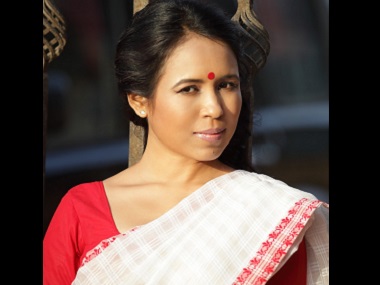For those who have watched Rima Das’ Village Rockstars (
India’s entry to the Oscars this year ), her new film, Bulbul Can Sing that premiered at the Toronto International Film Festival, will seem like both a departure from Dhunu’s story and a sequential successor to the heartwarming tale of Dhunu and her brilliance that transcends all the hardships her life had to offer. Bulbul Can Sing, also set in rural Assam, shifts its gaze to teenager Bulbul and her friends, Sumit and Bonny. They prance around paddy fields, climb trees and glow from the joy of being in love for the first time. Das plays with this idyllic setup and complicates the storyline with elements that are natural accompaniments to any realistic story about teenagers; through the film, she speaks about sexuality, societal moral policing and the many ways in which young people and their ambitions are inhibited and repressed by the social codes adults build around them. Within a narrative of bullying and unfair societal pressures, Das still manages to cull out a story that ends on hope and beauty, a beauty so ephemeral that it makes Bulbul forget all her sorrows, and sing out loud in praise of her very loving friends. Firstpost caught up with Rima Das shortly before her film’s world premiere in the Toronto International Film Festival. [caption id=“attachment_5243381” align=“alignnone” width=“825”]
 Filmmaker Rima Das[/caption] How difficult is for a woman to be making a film in India in an industry that is not Bollywood? I try and not think about what is difficult and what is not. I wanted to make a movie so I made it out of the place I am most familiar with, which is Assam. I believed that I knew my people so I could tell stories about them. Maybe because I never went to a film school, I was not aware of the risks and the difficulties that could have emerged out of making films. My expectations, too, were much lower. I just bought my own camera and started making films without putting much thought into it. Of course, getting money for films like this is difficult but making them is not difficult. When you don’t have big stars or a lot of money, you are answerable to less people and are in control of the situation. I find this space very liberating. How was it working with such young actors both in Bulbul Can Sing and Village Rockstars? I love working with kids and young people. They are extremely transparent and honest, the best part about them is that they surrender completely. As a director, it is very important for me to know that my actors trust me completely. I am pretty much a one woman crew in the production phase, with my cousin assisting me, so it really helps when I have actors who are easy to work with. Village Rockstars is a much happier film which the audiences have loved. Bulbul Can Sing is slightly darker. Was that a conscious decision? The protagonist, Dhunu was younger than Bulbul. You know life is simpler, lighter, and happier when you are that age. I do see Bulbul Can Sing as the second part of a trilogy, I am working on the third film. However, I wouldn’t say Bulbul is the grown up version of Dhunu. It’s a different story; Bulbul and her friends are older, the societal demands from them are more and their so called “transgressions” are scrutinised more strictly. Even life gets more complicated with age which makes it a slightly darker and sadder film. However, I don’t see Bulbul Can Sing as a particularly sad film either: the characters are positive, full of life and it is the society that makes it difficult for them to live independently. It wasn’t easy for me to change the track of storytelling because people have loved Village Rockstars and I could’ve continued to make different versions of that film, but where is the challenge in that? What is the most important theme of the film, according to you? It’s the friendship; not just the friendship between Bulbul, Sumit and Bonny but also the very special emotional bond between Bulbul and Bonny’s mother. It is a very tender relationship. For me, obviously the idea of family is important but I have always loved to explore strong relationships that lie beyond the family and the unconditional love that naturally comes with it. For me the love that comes from people who are not related, love that is not a result of a familial duty, is very interesting and I try to depict that through Bulbul and her friends. All characters are grey for me. So when Bulbul feels isolated within her own family, I had to, without being judgemental, create another source of emotional support and love to compensate for it—a source that is not an obvious choice. I just wanted to say that there will always be people who will care for you, you just have to seek them out and Bulbul does that. [caption id=“attachment_5243421” align=“alignnone” width=“825”]
 Stills from Bulbul Can Sing. Images courtesy TIFF[/caption]
For those who have watched Rima Das’ Village Rockstars (India’s entry to the Oscars this year), her new film, Bulbul Can Sing that premiered at TIFF 2018, will seem like both a departure from and a sequential successor to Dhunu’s story
Advertisement
End of Article


)
)
)
)
)
)
)
)
)



